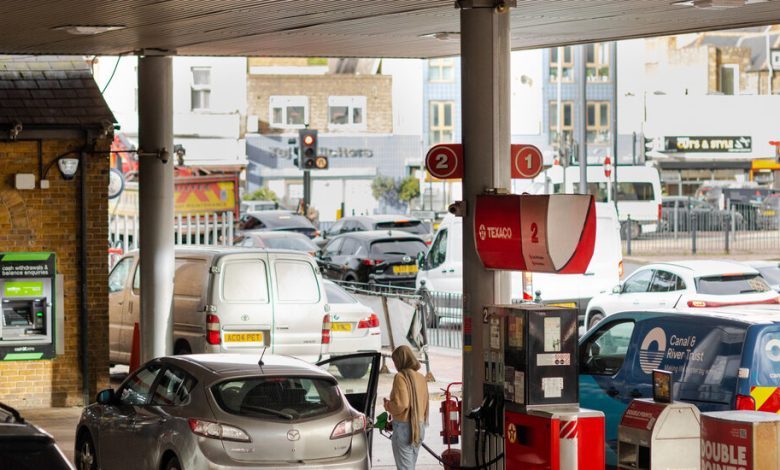Britain’s Inflation Rate Slows to 10.7 Percent

Consumer prices in Britain rose 10.7 percent in November from a year earlier, bringing the rate of inflation down slightly from a 41-year high.
Despite this tentative sign that inflation might have peaked, Britain is still gripped by a deep cost-of-living crisis as wages fail to keep up with inflation and households are squeezed by high energy bills, food costs and mortgage rates. Britons are facing the prospect of a sharp decline in living standards over the next two years, which is prompting a growing wave of labor unrest. Railroad and postal workers are on strike on Wednesday over demands for higher pay, while nurses are set to walk off the job on Thursday.
Prices rose 0.4 percent in November from the previous month,when prices climbed 2 percent in a single month because of higher energy bills. The deceleration will bring some relief to Bank of England policymakers who have sharply raised interest rates to try to tamp down inflation. Inflation also slowed more than expected in the United States, data released on Tuesday showed.
In Britain, core inflation, which excludes energy and food prices, slowed to an annual rate of 6.3 percent, from 6.5 percent in October. A slowdown in transportation prices, particularly for fuel, as well as clothing and recreation services, all contributed to the lower inflation rate, while rising prices in restaurants and for groceries partially offset that.
But this isn’t enough for central bankers to declare victory, as the Bank of England targets a 2 percent inflation rate. On Thursday, policymakers are expected to raise interest rates for a ninth consecutive time, by half a percentage point, to 3.5 percent.